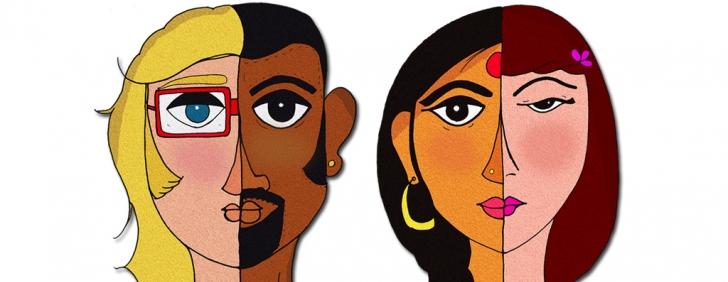Your Snobbery Stinks Like My Cheese

A few Saturdays ago, we bought by mistake not one, but two blocks of blue cheese.
There's only so much blue cheese that can go into a salad. So, to save the $12, I asked our housekeeper to return the unopened block of cheese to the shop.
She looked at me doubtfully.
"They don't take things back from helpers," she explained to me. "No use. Try many times."
"Nonsense," I confidently replied. "The world's not that unjust."
She shrugged.
Despite her misgivings, I persuaded her to try.
She left for the shop, and not without resignation.
Our housekeeper comes from a different nation and occupies a different income strata from my family.
I wondered if her claims were really true. Would a straight-forward commercial transaction be complicated by race and class?
Discoloured
Some time later, she returned, having failed to get the shop to take the cheese back. She held the same blue cheese aloft - saying 'I told you so' without saying that she had told me so.
By now the cheese had discoloured due its absence from refrigeration.
Somewhat startled, I decided to put her theory to the test. Did the shop really not accept the cheese simply because she was a housekeeper?
A few hours later, and dressed like an after-hours lawyer, I was at the same shop with the very same blue cheese, which by now was starting to run, owing to its many trips to and from the shop.
"Hello," I cheerfully addressed the lady at the counter. There was a big sign saying "Customer Service".
"I bought this blue cheese by accident. Can I return it?"
The lady eyed the fateful package. I smiled my best smile.
"No problem, sir," she addressed me. "You can sign here."
We later verified that it was the same lady at the same shop dealing with the same cheese. Just not with the same result.
Race and class had interfered.
How We Judge
Prejudice is where judgment is made before the real evidence is actually known - pre-justice.
Pre-justice generally gives rise to injustice.
A judgment that is based on irrelevant factors, while ignoring relevant factors, is likely to be unjust.
The merits of the sales return of a smelly chunk of cheese should not have been blinded by considerations of race and class. The wrong thing starts to stink when that happens.
Race and class are so often matters that are out of our hands. Why should they confuse the merits of each individual case?
My vision of an equal society is not one where people are of the same race or equal financial standing.
An equal society is where the merits of a poor person's case have an equal chance of succeeding as the merits of a rich person's case. And where the merits of a purple person's case have as much a chance of succeeding as the merits of a green person's.
There's no shame in being in any economic bracket or social class.
The shame is on someone who feels more important because of self-imagined superiority of race or class.



